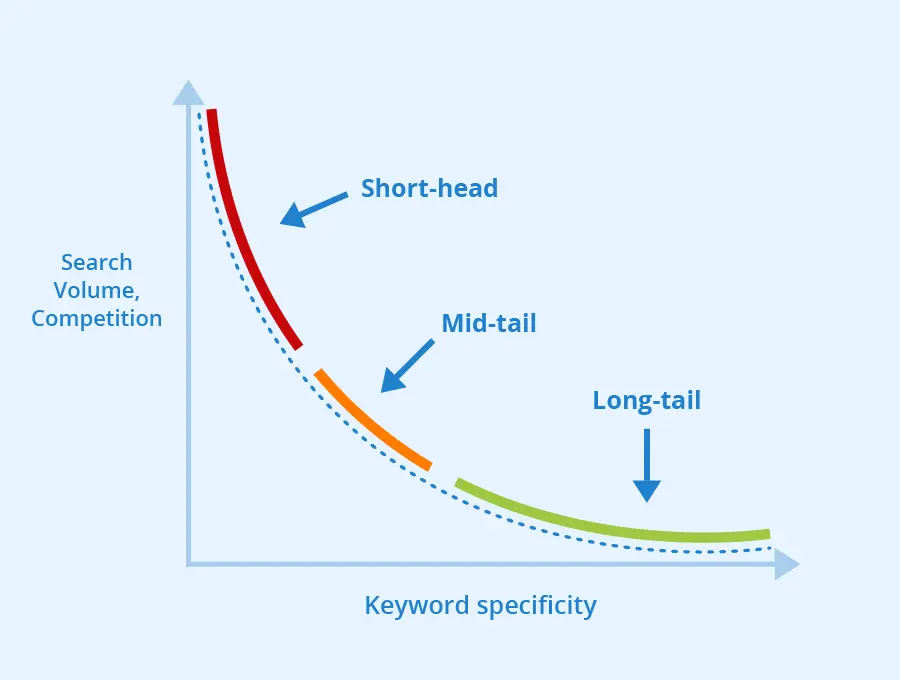
A Step-by-Step Tutorial on Using Keyword Research Tools
Hey there, digital adventurers! Welcome to the exciting world of SEO, where keywords are the magic spells that open doors to traffic, engagement, and success. Today, let's embark on a journey through the landscape of keyword research tools. Buckle up, and let's explore how to use these tools to supercharge your online content.
The Importance of Keyword Research in SEO
Picture this: SEO is a vast ocean, and keywords are your compass. They guide you to what your audience is searching for, helping you align your content with their needs and questions.
The Basics of Keyword Research Tools
- Understanding Keyword Research Tools: These are the gadgets in your SEO toolkit. They help you find the words and phrases people use when searching for content like yours.
- The Benefits of Using These Tools: Keyword research tools not only reveal what terms to target but also provide insights into trends, competition, and even content ideas.
- Choosing the Right Tool for You: Free or paid? Simple or advanced? Your choice depends on your needs, budget, and the depth of data you require.
Step-by-Step Guide to Using Keyword Research Tools
- Starting with Seed Keywords: Begin with seed keywords - these are broad terms that define your topic or niche. They’re the starting point from which more specific keywords grow.

- Generating Keyword Ideas: Enter your seed keywords research tool. Like planting seeds in fertile ground, this will sprout a list of related terms and phrases.
- Analyzing the Keyword Suggestions: Now, sift through these suggestions. Look at their search volume, competition, and relevance to your content.
- Understanding Keyword Metrics: Search volume, competition, keyword difficulty – these metrics are key to choosing the right keywords.

- Identifying Long-Tail Keywords: Long-tail keywords are your secret weapon. They’re more specific, less competitive, and excellent for targeting niche audiences.
- Considering User Intent: Why is someone searching for this keyword? Understanding user intent is crucial to ensure your content meets their needs.
- Crafting Your Content Strategy: Use your keyword research to plan content that resonates with your audience. It’s like using a treasure map to find hidden gold.

- Optimizing Your Content: Sprinkle these keywords throughout your content - in the title, headers, and body. But remember, keep it natural.
- Monitoring and Adjusting: SEO isn’t set-it-and-forget-it. Regularly check how your keywords perform and be ready to tweak your strategy.
- Adapting to Changes: Search trends can change like the wind. Stay flexible and update your keyword strategy accordingly.
- Balancing Quantity and Quality: Don’t just aim for high-volume keywords. A mix of high and low-volume keywords often yields the best results.
- Avoiding Keyword Stuffing: Keyword stuffing is a big no-no. It makes your content unreadable and can hurt your SEO.
Advanced Keyword Research Techniques
Check out what keywords your competitors are ranking for. It’s like learning from the best in the game.

- Exploring Seasonal and Trending Keywords: Capitalize on seasonal trends and hot topics to keep your content fresh and relevant.
- Utilizing Local SEO Keywords: If you’re targeting a local audience, don’t forget to include local search terms.
- Embracing AI and Machine Learning: As AI and machine learning evolve, expect keyword research tools to become even smarter and more insightful.
- Staying Ahead in a Dynamic SEO Landscape: SEO is always changing. Keep learning, keep experimenting, and stay ahead of the curve.
Conclusion: Mastering the Art of Keyword Research
In conclusion, mastering keyword research tools is like learning to navigate the high seas of the digital world. It’s an ongoing journey of discovery, adaptation, and growth. By understanding how to effectively use these tools, you can unlock the full potential of your content and connect with your audience in meaningful ways. Remember, the right keywords are the bridge between your content and your audience. So keep researching, keep refining, and watch as your digital presence flourishes. Here's to your success in the ever-exciting world of SEO!
Free Tools: Free Domain Age Checker Tool Online | Free Domain Name Search Tool Online
Frequently Asked Questions
1. What is the best keyword research tool?
The best keyword research tool depends on your needs. Tools like SEMrush and Ahrefs offer comprehensive features, but they're paid. Google Keyword Planner is a solid free choice, good for beginners. Consider your budget and the level of detail you need.
2. Is there a free keyword research tool?
Yes, there are free tools like Google Keyword Planner and Ubersuggest. Google Keyword Planner integrates with Google Ads and offers basic keyword data. Ubersuggest provides keyword ideas and competition levels. Free tools are great for starters and small projects.
3. What is an SEO book keyword research tool?
SEO Book Keyword Research Tool is a tool that provides data on search volume, competition, and trends. It helps in finding keywords for SEO and PPC campaigns. It’s known for its comprehensive data pulled from various sources. It's useful for detailed keyword analysis.
4. What is the keyword tool used for?
A keyword tool is used to find words or phrases people use in search engines. It helps in identifying popular and relevant keywords for SEO and PPC. These tools show search volume, competition, and related keywords. They're essential for effective digital marketing strategies.
5. How do I find SEO keywords?
Use keyword research tools like Google Keyword Planner or Ahrefs. Look for keywords relevant to your content with high search volume. Also, consider long-tail keywords, which are more specific. Understanding your audience’s search intent is key.
6. What are SEO keywords examples?
SEO keywords are terms that people use to search online. For example, a bakery might target keywords like “fresh gluten-free bread” or “birthday cakes near me”. They should be relevant to your content and services. Good keywords align with what people are searching for.
7. How many SEO keywords?
There's no set number of SEO keywords to use. Focus on quality and relevance over quantity. It's better to target a few well-chosen keywords than many irrelevant ones. Balance broad and long-tail keywords for the best results.
8. What are good keywords?
Good keywords are relevant to your content, widely searched for, and not overly competitive. They should match the search intent of your target audience. Consider both broad terms and specific long-tail keywords. The best keywords effectively connect your content with your audience.
9. How does SEO work?
SEO (Search Engine Optimization) improves your website to rank higher in search results. It involves using relevant keywords, creating quality content, and ensuring your site is user-friendly. SEO also includes building backlinks and optimizing technical aspects like site speed. Effective SEO increases your site’s visibility and traffic.



